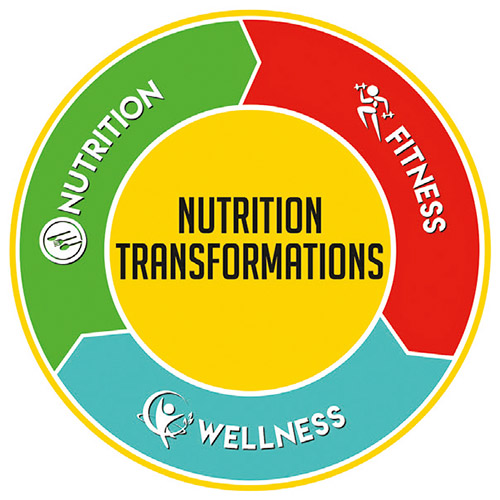

Dear Jenn,
I lost weight this year and worked hard at it. Holidays are difficult for me when it comes to sticking to my diet. I lose control and can’t stop binging. Over Pesach, I nearly gained all the weight previously lost! I feel defeated and depressed. I am my own mortal enemy. Can you suggest how not to go down like this over the holidays?
Sincerely,
Pouting After Pesach
Dear Pouting After Pesach,
Holidays are very hard on the diet. Passover is especially challenging because our diet changes for this particular holiday. We eat food items that are not eaten during the year and don’t eat products usually consumed. It is easy to mindlessly munch on matzos, which do not seem to fill us up as compared to bread. There is an abundance of Passover food products on the market; while convenient and tempting they contain high-calorie contents such as tapioca, potato starch and shortening. The Seders, Yom Tov, Shabbat, entertaining guests and the need to prepare lots of food for the holiday can all add up to a diet disaster! Don’t be so hard on yourself. Let’s learn from this mishap.
Calories … Calories!
Weight gain is directly related to caloric intake and usage. In my previous columns I discussed tips to help control calorie intake during holidays. See “Holiday Weight Gain Blues Mama” and “Shabbat Over-Eaters” I offer suggestions of how to reduce caloric intake by preparing meals that are healthy and relatively low in calories. Consume lean meats, remove skin from poultry and remove excess fat from soups. Fish is a high-quality protein and calorie-friendly. Select low-fat dairy items such as cheese, yogurt and milk. Fresh fruits and vegetables are high-nutrient items that are calorically wise; both are recommended to incorporate in the holiday meals and/ or for snacks.
Portion Sizes
Also previously discussed is portion-size control. Get familiar with what is considered a portion size for food products. For example:
- 1 regular matzah
- 1 medium size potato
- 1 chicken breast
- 3 medium sized meatballs
- ½ cup of fruit salad
- 1 thin slice of cake
Food Preparations
Food preparation is also important for weight control. Avoid high empty-calorie sugary-salty sauces. Preferably, season foods with natural spices and herbs. Prepare foods with “no sugar-added” cooking wine or juice to enhance flavor and keep products tender. Fresh, lightly dressed vegetable salad is the way to go with appetizers or as a side dish. And fresh fruit with a scoop of sherbet (3-4 oz) is a calorie-controlled winning dessert.
Exercise
I cannot emphasize enough that exercise and diet are partners in weight control and health maintenance. When overeating at a holiday meal, walk afterwards; it will help slow weight gain to some extent. Exercise helps keep your body strong and fit. It helps prevent diseases, has beneficial effects on mood and improves sleep. Exercise boosts metabolism so calories are burned efficiently and weight can be controlled.
It is important to find a slot of time to exercise/walk, even on a busy Yom Tov schedule. Consider scheduling your daily exercise as an appointment as you would schedule an important work meeting. Make exercise a priority because good health and longevity is directly related to fitness.
So What Happened Over Passover?
Overeating at holiday meals and nonstop nibbling in between meals is “emotional eating.” This self-defeating eating behavior is learned in childhood when we psychologically connect relief of pain, physical and/or emotional, with eating or drinking. “True hunger” is when you have not eaten for hours and your body needs to replenish nutrients. When you feel the need to eat under those circumstances, you are “physically hungry.” Emotional hunger is the desire to snack or munch shortly after eating a meal.
Jewish holiday meals are religious, cultural and social experiences that are memorable and joyful. However, sitting around the dining room table socializing for extended periods of time encourages extra helpings. A wide display of decadent desserts is not helpful!
What to Do
Weight control, dieting and a regular exercise regimen are about proper technique and discipline. It is the internal desire to feel and look physically healthy and confident. It is realizing the extra calories from overeating and noshing do not look good on you and equally important negatively impact your health. In addition, emotional soothing by binging leaves feelings of guilt and excessive fullness.
Learning how to control emotional eating takes time, therapy and practice. There are techniques to help you to change this destructive behavior pattern, including during holiday times. Learning and making a habit of preparing healthy meals, controlling portion sizes and self-control to avoid overeating can be done and is painless. It is about “state of mind” and changing for the better you.
If you want to “eat to live” rather than “live to eat,” Nutrition Transformations can help you transform your life for the healthier you. Give us a call today; we are here for you!
See our website and new blog: www.Nu-transform.com
Call for more information on our weight and exercise support group, coming soon!
Yours in good health,
Jenn
718-644-1387











